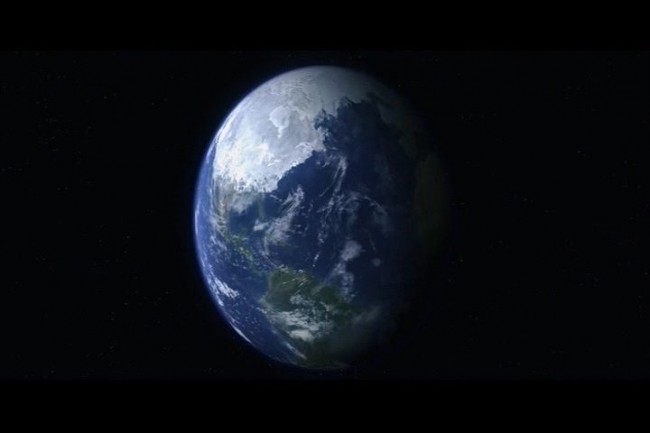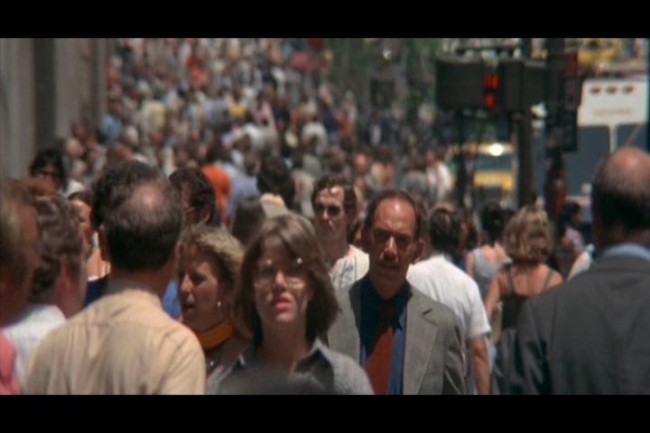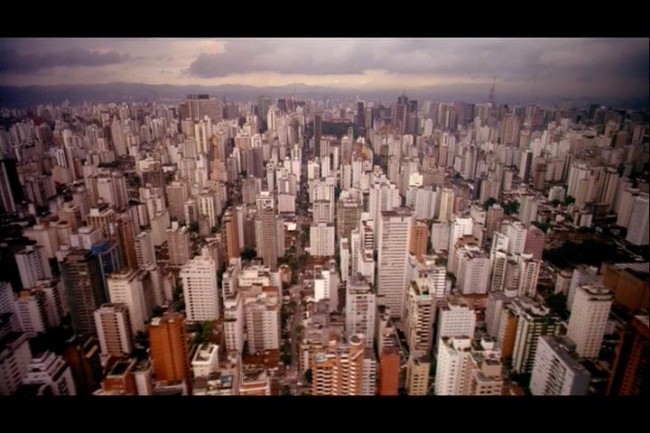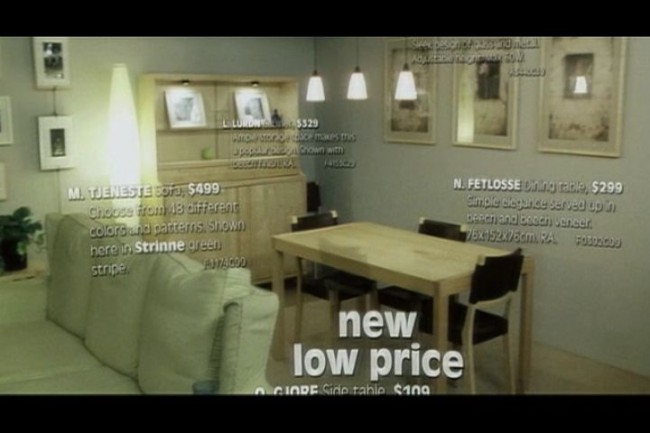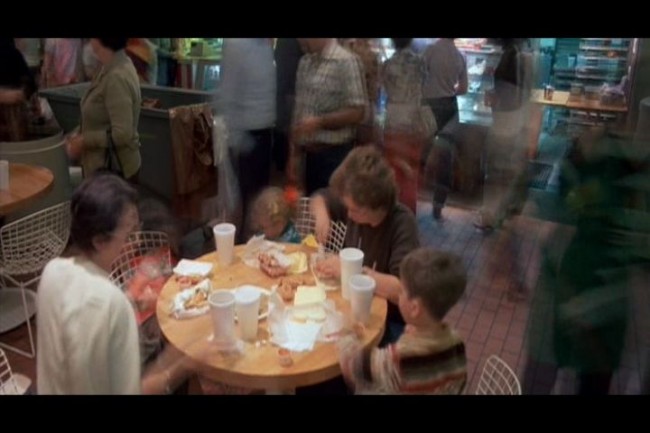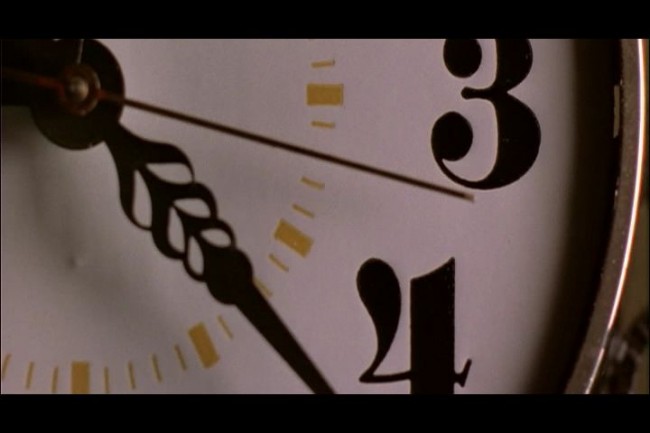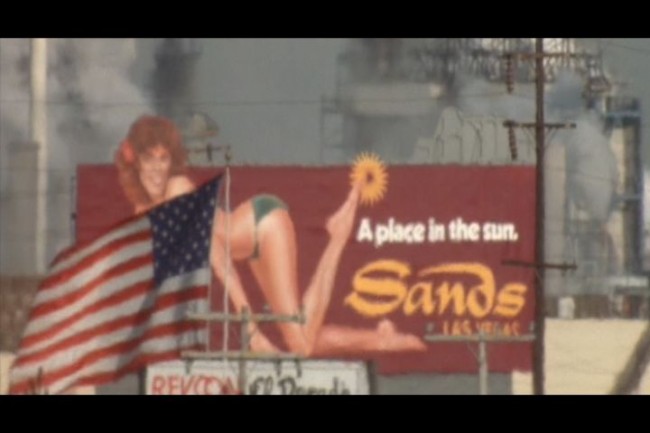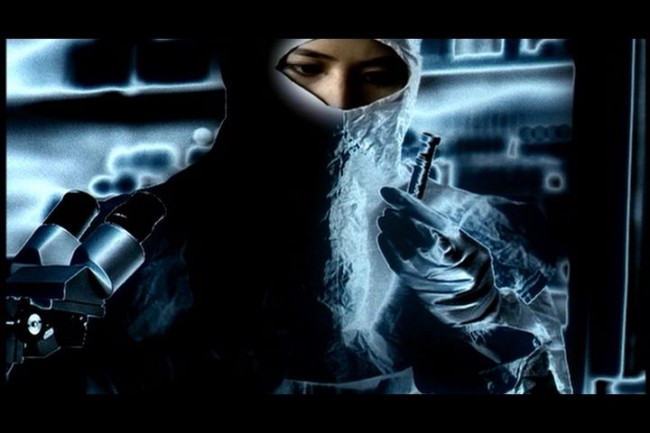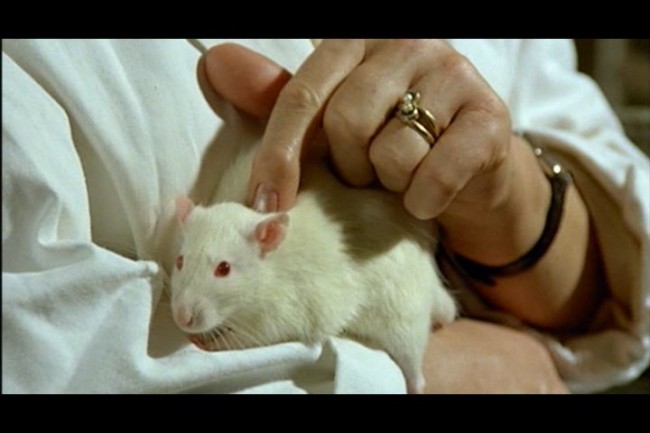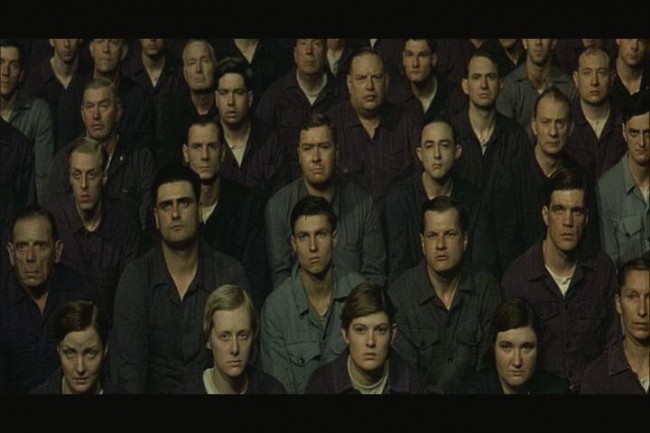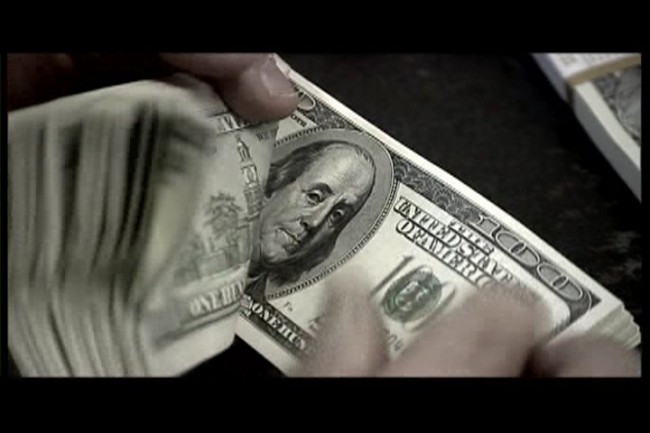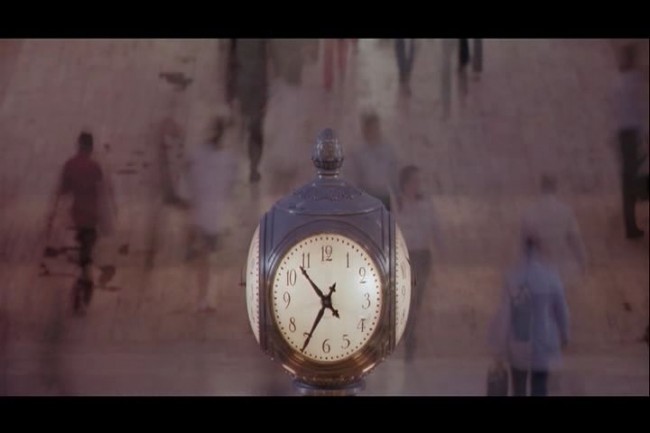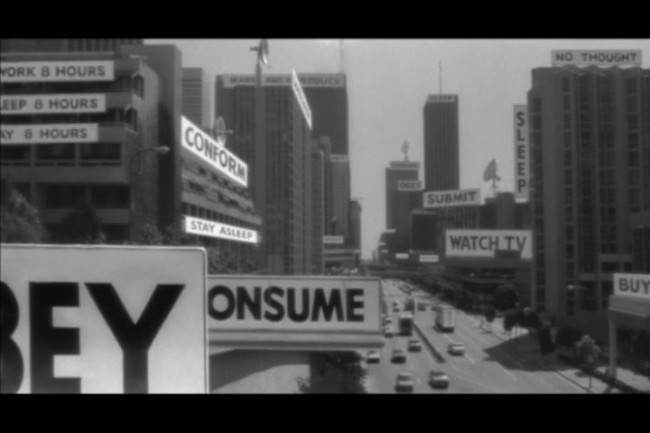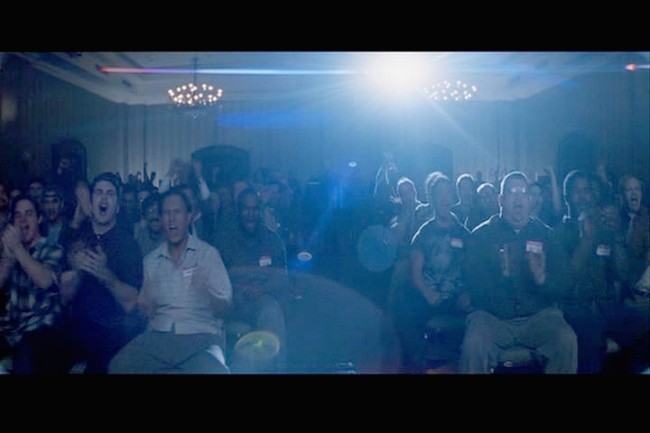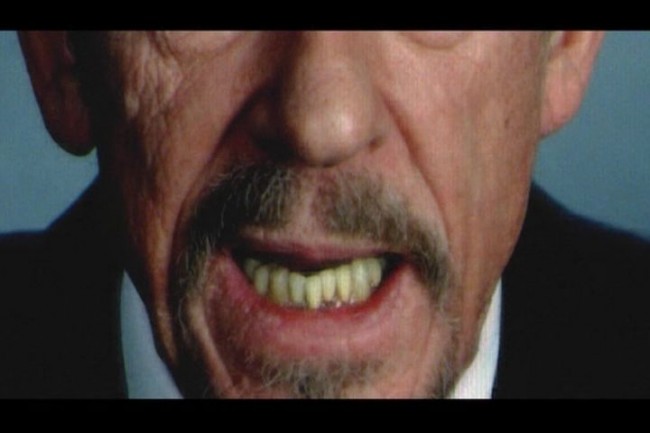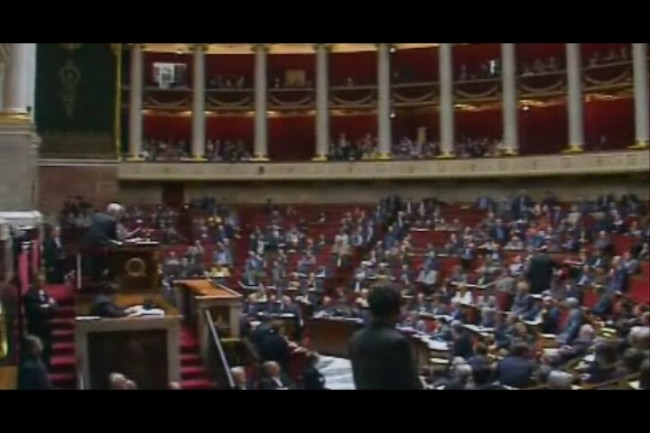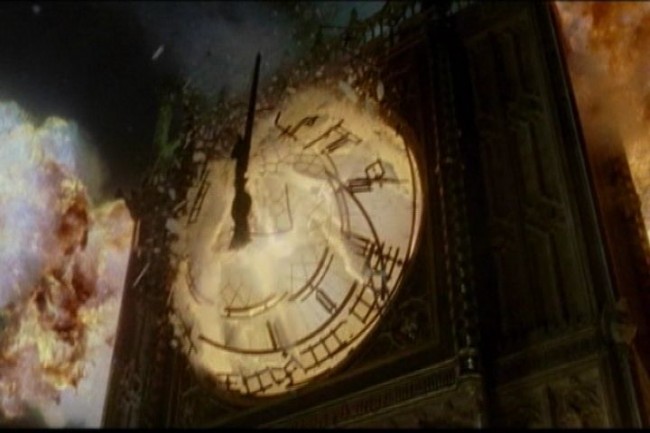On modern servitude
30 Νοεμβρίου 2009
Chapter I: Epigraph
“My optimism is based on the certainty that this civilization is about to collapse. My pessimism lies on the things that are dragging us down in its fall”
Chapter II: Voluntary servitude
“Tis the times’ plague, when madmen lead the blind. “
William Shakespeare
Modern servitude is voluntary, consented to by the mass of slaves who trudge along the face of the Earth. They themselves buy the commodities that enslave them every day more. Slaves procure alienating jobs that are bestowed upon the tamed. They, themselves, choose the masters whom they will obey. For this absurd tragedy to play-out, it has been necessary to breed in them the ignorance of their own exploitation and alienation. Behold the bizarre modernity of our time. As with the slaves of antiquity, serfs of the Middle Ages or the working-class of the first industrial revolutions, today we bear witness to an emerging class of the totally enslaved. The difference being that they don’t know it or better yet choose to ignore it. They fail to recognize the one weapon available to the enslaved: rebellion. Slaves accept without question the pitiful life that was manufactured on their behalf. Apathy and resignation are the sources of their misfortune.
Behold the nightmare of the modern-day slave; whose sole aspiration is to be swept away by the macabre dance of the machine of alienation.
Oppression becomes modern spreading out everywhere mystifications that hide our slave condition.
Reveal reality as it is and not as power represents it, is indeed the most genuine subversion.
Only truth is revolutionary.
Chapter III: Town planning and housing
“Urbanism — “city planning” — is capitalism’s method for taking over the natural and human environment. Following its logical development toward total domination, capitalism now can and must refashion the totality of space into its own particular decor.”
Guy Debord, Society of the Spectacle.
As slaves build their world with the alienated strength of their work, the worlds decor becomes the jail they will be forced to inhabit; a squalid world lacking taste and scent, a host to the misery inherent in the dominant mode of production.
This decor is in a state of perpetual construction, nothing in it is constant. The ceaseless redesign of the space that surrounds us is justified by the generalized amnesia and insecurity that its inhabitants must live with. The systems objective is to fashion everything in its image: every day the world becomes dirtier and noisier, like a factory.
Every inch of land in this world belongs to a State or to an individual. This social theft through the acquisition of lands is manifest by the omnipresence of walls, fences, barriers and frontiers. These are the visible marks of the divide that invades everything.
The unification of space for commercial ends, however, is the grand objective of our sad age. The world must become an immense and efficient highway in order to facilitate the transport of merchandise. Every obstacle, human or natural, must be destroyed.
The inhumane concentration of modern day slaves into reduced crowded spaces reflects their lives and evokes cages, jails, and caves. But in contrast to slaves or prisoners, the modern day slave pays for his cage.
“Because it is not the man but the world which has become abnormal.”
Antonin Artaud
Chapter IV: Commodities
“A commodity appears, at first sight, a very trivial thing, and easily understood. Its analysis shows that it is, in reality, a very queer thing, abounding in metaphysical subtleties and theological niceties.”
Karl Marx, The Capital, chapter 1, book 4.
In this narrow and mournful place they inhabit, slaves accumulate the commodities that according to the omnipresent advertising guarantee happiness and fulfillment. Alas, the more commodities they accumulate the more elusive happiness becomes.
For what will it profit a man if he gains the whole world, and loses his own soul?
Mark 8:36
Commodities, ideological by nature, estrange from his work he who produces them and divorce from his life he who consumes them. In the dominant economic system, demand no longer drives supply; it is supply, which determines demand. , New needs are periodically manufactured and hence considered essential by most people: it began with the radio, then the automobile, later the television set, the computer and now the cell phone.
All these commodities, massively distributed in a brief period of time, profoundly alter human relationships: they serve to isolate human beings from their fellow creatures while at the same time they propagate the dominant messages of the system: “Everything we possess will in turn possess us”
Chapter V: Nourishment
«Poison for some; food for others»
Paracelsus
It is in the manner in which the modern slave feeds himself that better illustrates his degree of decay. With little time to spare for the preparation of his sustenance, he is reduced to consuming quick meals produced by the agrochemical industry. He wanders through supermarkets looking for the ersatz that the society of false abundance offers. Once again, his choice is nothing but illusion. The abundance of food as a commodity is evidence of its degradation and falsification. It is nothing more than genetically modified organisms, a mix of colorants and preservatives, of pesticides, hormones and other inventions of modernity. Immediate gratification is the motivation behind how a slave chooses to feed himself, this is the motivating factor for all forms of consumption. The consequences are everywhere evident.
However, it is when faced with the indigence of the majorities that the westerner can rejoice in his position of privilege and frenetic consumption. As a consequence, Misery is ubiquitous in a totalitarian mercantile society. Scarcity is the other face of the false abundance coin. Despite the ample supply produced by the agrochemical industry, in a system where inequality means progress, hunger must not disappear, ever
“They have convinced themselves that man, the worst transgressor of all species, is the crown of creation. All other creatures were created merely to provide him with food, pelts, to be tormented, exterminated.”
Isaac Bashevis Singer
The other consequence of the alleged food abundance is the multiplication of “concentration” factories and the massive and barbarous extermination of species for the sustenance of the enslaved. That is the essence of the dominant mode of production. Life and humankind cannot withstand the thirst for profit of a few.
Chapter VI: destruction of the environment
“It is a sad thing to consider nature talks and human kind does not listen. «
Victor Hugo
The pillage of the planets resources, the massive production of energy or commodities, the waste products of the ostentatious consumption, jeopardize the possibilities of survival for our planet and the species which inhabit it. However, in order to give way to brutal capitalism, the growth must continue. Produce, produce and keep producing.
Those who contaminate are today misrepresenting themselves as the saviors of the planet. Those show business buffoons, sponsored by multinationals firms, try to convince us that a simple change in our habits will be enough to save the planet from disaster. And while they blame us, they keep on contaminating the environment and our souls. Those poor pseudo ecological views are repeated by corrupt politicians in need of advertising slogans. Those in charge take pains to avoid making significant change in the production system and as always, change is half hearted and superficial, things remain as they are and have always been.
Chapter VII: Work
Work (travail in French), from Latin tri palium “three sticks”, “torture instrument”
To participate in the round of frenetic consumption, one must have means and one must, therefore, work, in other words, one must sell oneself. The dominant system champions work as its most esteemed value; slaves have to work more to buy on credit their miserable lives. Slaves wear out in the work place; they waste their vital strength and have to suffer the worst humiliations. They spend their lives performing grueling tasks for the benefit of a few. Modern unemployment is invented as a scare tactic to force slaves into endless gratitude the generosity of the power elite.
What would they do if they didn’t have to suffer this torture called work? These Alienating activities are touted as freeing. What degradation and what misfortune!
Always pressured on by the time clock or the whip; every movement of the slave is designed to increase productivity. The scientific organization of labor is at the heart of the workers divestment from himself, the fruit of his labor and his time – which is misspent in the automated production of commodities or services. The workers labor is mistaken for that of the machine in the factories, or the computer in the office. Paid time will never be recovered.
Every worker is assigned a repetitive duty, be it physical or intellectual. The worker is a specialist in his own field. This specialization can be seen on a worldwide scale within the framework of the international division of labor. Conceived in the West, produced in Asia and lethal in Africa.
Chapter VIII: The colonization of every sector of life
“Men is conditioned to have a productive behavior by the work organization; and outside the factory, he preserves the same skin and the same head”
Christophe Dejours
To the extent that the system of production colonizes every sector of life, the modern slave wastes his free time in leisure activities and planned holidays. No part of his life escapes the reach of the system. Every moment of his life has been invaded. He is a full time slave.
Chapter IX: Mercantile medicine
“Medicine makes you die slowly”
Plutarch
The generalized degradation of his environment, of the air he breaths, of the food that he consumes; the stress of his working environment, his entire social condition are the origins of the new diseases befalling the modern slave. His servile standing is an ill for which there will never be a cure. Only the complete emancipation from his present condition would allow the modern slave to recover from his suffering.
Western medicine knows only one way to cure the maladies of modern-day slaves: mutilation. Under commercialized medicine, patients are subjected to surgeries, antibiotics or chemotherapy. The origins of pain are never considered, only its consequences, such a search would inevitably lead to a condemnation of the social structure in its totality.
Just as the current system reduces everything in our world to mere commodities, so does it transform our bodies into such; into the object of study and experimentation of the pseudo-wise men of commercial medicine and molecular biology. The masters of the world are set to patent every living thing. The complete sequencing of the DNA of the human genome is the point of departure of a new strategy decided on power. Genetic decoding serves no purpose but to considerably expand domination and control.
As with many other things, our bodies no longer belong to us.
Chapter X: Obedience as a second nature
“Through obedience one develops the reflex of submission”
Anonymous
The best part of the slaves life slips through his fingers, but he continues because he has always obeyed. Obedience has become second nature to him. He obeys not knowing why, simply that he must. Obey, produce and consume, behold the triptych that rules his life. He obeys his parents, his teachers and his masters, the landlords and the merchants. He obeys the forces of law and order; he obeys all powers because he does not know any better. There is nothing that frightens him more than disobedience, because it signifies risk, adventure, change. Just As a child panics when he loses sight of his parents, the modern slave feels lost without the power system that has created him. Therefore, his obedience continues..
Fear has made us slaves and it keeps us in that condition. We bow before the masters of the world; we accept this life of humiliations and misery, strictly out of fear.
Nevertheless, we count on greater numbers as compared the ruling class.. Their strength does not come from the police, it comes from our consent. We justify our cowardice to the forces that oppress us with a discourse full of moralizing humanism. The rejection of revolutionary violence is anchored in the spirit of those who oppose the system while defending the values it teaches. .
But when power must defend its hegemony it never hesitates in using violence.
Chapter XI: Repression and supervision
“Under a government, which imprisons unjustly, the true place for a just man is also a prison.”
Henry David Thoreau, Civil Disobedience.
Nonetheless, there are individuals who escape mental control, but they are under surveillance. Every uprising or act of resistance is considered deviant behavior or an act of terrorism. Freedom is reserved for those who defend the commercial interests. Henceforth, the real opposition to the dominant system is totally clandestine. For its retractors, repression is the law. The silence of the majority of slaves facing this repression is the result of a political and media campaign that denies the existence of this real conflict.
Chapter XII: Money
“What we did before for the love of God, nowadays we do it for the love of money, which means, for the love of what gives us the sensation of highest power and good conscience”
Aurora, Nietzsche
As with all oppressed human beings throughout history, the modern slave needs mysticism and god to anaesthetize the evil that torments him and the suffering that overwhelms him. But this new god to whom he gave his soul is naught but nothingness: a piece of paper, a number that, through his common consent, acquires artificial value. It is in the name of this God that people work, study, fight, and sell themselves. It is for this God that man forsakes his values and is prepared to do whatever. He believes that the more money he possesses the more free he will be from all constraints, as though ownership and freedom went hand in hand. Freedom is the asceticism that comes from self-control, from the desire and will to act. To be, not, to have. One must resolve to never serve and obey under any condition. But to be free, it is necessary to break with habits that no one, it seems, dare challenge.
Chapter XIII: There is no alternative to the dominant social organization
Acta est fabula
The play is done
Today’s slave is convinced that there is no alternative to the existing world order. He has resigned himself to this life because he believes there is no other. Herein lies the force of the present domination; maintain the illusion that this system, which has colonized the entire world, is the end of History. It has convinced the subjugated class that this ideology is mankind’s true state of nature, and as such his logical condition. To dream of a different world has become a crime condemned in unison by the media and all the entities of power. When in reality, the criminal, is he who contributes, consciously or not to the dementia of the dominant social structure. There is no greater madness than that of the present system.
Chapter XIV: Image
“But if not, let it be known to you, o king, that we do not serve gods, nor will we worship the gold image which you have set up”.
Daniel 3 :18
In light of the world’s devastation, the system needs to conquer the slaves’ conscience. At an early age, repression takes the form of dissuasion and is used in the formation of slaves. It is for this reason the system has focused, at an early age, on dissuasion as the predominant lesson in the slaves’ miseducation. They must forget their servile condition, their prisons and their miserable lives. The sight of hypnotized masses, connected to the screens that accompany their daily lives is proof enough. They disguise their permanent dissatisfaction with the distorted image of a dream life, made of money, glory and adventure. But their dreams are as deplorable as their miserable life.
There are images for everything and for everybody. Those images constitute the ideological message of modern society and serve as means of unification and propaganda. As mankind is stripped from his world and his life these images multiply. Children are the first target of these images. They must be made stupid, bereft of any reflective and critical thinking. All this is done with the disconcerting complicity of their parents, who have surrendered to the modern communication apparatus. They themselves buy the commodities that enslave their offspring. They abdicate their role in their children’s education and entrust it to a mediocre and stultifying system.
There are images for all ages and for all social classes. Modern slaves mistake those images for culture, and at times, for art. The market relies on the basest impulses to sell any commodity. It is women, doubly enslaved in today’s society, who pay dearest. In it, she is reduced to being a mere object of consumption. The image of uprising has also been divested of its subversive potential. The image is today the simplest and most effective form of communication. It creates role models, it stultifies the masses, it lies to them, and it breeds frustrations in them. The mercantile ideology is disseminated repeatedly through the use of the Image. Its objective is always the same: to sell; be it ways of life or products, behaviors or commodities, no matter what, sell.
Chapter XV: Entertainment
These unfortunate slaves entertain themselves, but the entertainment serves only to distract them from the ills that plague them. Slaves have left their lives in the hands of others to do whatever they will and pretend to take pride in it. They affect satisfaction, but nobody believes it, even before the cold reflection of the mirror, they fail to fool themselves. They pilfer their time watching idiots who make them laugh or sing, dream or cry.
The sports media, becomes a channel through which slaves feel the success, failure, effort and victory, they no longer experience in the flesh. They live by proxy in front of the television set. While the Emperors of Ancient Rome lulled their people into submission with the promise of “bread and games”, todays acquiescence is procured through entertainment and the consumption of emptiness.
Chapter XVI: Language
“We think we master words but in fact words master us.”
Alain Rey
The domination of consciousness is the result of the misuse of language by the social and economic ruling class. As the masters of all means of communication, the power elite disseminate the market ideology through the fixed, partial and concocted meaning it gives to words.
Words are invoked as neutral and their definition as evident; however, when controlled by power, words fix a very different meaning to the reality of life.
It is primarily a language of resignation and impotence. It is the language of passive acceptance of things as they are and should remain. Words are the lackeys of the dominant system of life, our use of the power’s language condemns us to impotence.
The resolution of the language issue is at the core of the struggle for the emancipation of humankind. It is not an additional form of domination, but the heart itself of the totalitarian mercantile system’s project to enslave.
It is by re-appropriating language and thus communication among people that the possibility of radical change arises. In this way the revolutionary and the poetic converge. In the collective effervescence, the spoken word is reinvented by a myriad of groups. Spontaneous creativity is within us all and is a force for unity.
Chapter XVII: The illusion of voting and parliamentarian democracy
“To vote is to abdicate”
Elysées Reclus
Despite his bonds the modern slave is convinced of his citizenship.. The illusion of choice and free determination is fueled by the ability to vote and freely elect those who will conduct his affairs. When it comes down to deciding the society we want to live in, is there really any fundamental difference between the Social Democrats and the Populist Right in France, between Democrats and Republicans in the United States, between Labor and Conservatives in the United Kingdom? There is no opposition, because the main political parties agree on one essential thing: the conservation of the present mercantile society. None of the political parties that enter into power question the commodities dogma. And those political parties with media complicity monopolize the airwaves. They squabble about trite matters ensuring the status quo. They fight over who will hold the seats that the mercantile parliamentary offers. Those petty disputes are disseminated by the media as a distraction from the critical debate about the election of the society we want to live in. Appearance and triviality eclipse the confrontation of ideas. None of this resembles, not even from afar, a democracy.
Real democracy is defined, firstly, by the mass participation of citizens in the governance of community affairs. It is direct and participative. The popular assembly and the permanent dialogue about the organization of a common life are Democracy’s most authentic expressions. Representative and parliamentarian forms of government usurp the name of democracy, limiting the power of citizens to the simple act of voting, that is, to nothing. Deciding between light grey and dark grey is not a real election. Parliamentarian’s seats are mainly occupied by the dominant economic class, be it the right or the pseudo leftist social democrats.
Power is not to be conquered, it is to be destroyed. It is tyrannical by nature, whether exercised by a king, a dictator or an elected president. The only difference with the parliamentarian “democracy” is that the modern slave has the illusion of choosing the master he will obey. The vote has made him an accomplice to the tyranny that oppresses him. He is not a slave because masters exist; masters exist because he elects to remain a slave.
Chapter XVIII: The Totalitarian Mercantile System
“Nature did not create masters nor slaves, I do not want to give nor receive laws”
Denis Diderot
The dominant system is defined thus by the omnipresence of its mercantile ideology. It occupies every space and every sector of life. It calls us to “produce, sell, consume, and accumulate”. The dominant system has reduced all human interaction to dry mercantile relationships and considers our planet a mere commodity. Our duty is to be servile. The only recognized right is the right to private property. The only god it worships is money.
The right to appear is monopolized by those in power. The stage is reserved for the men and speeches that uphold the dominant ideology. Critical thinking is drowned out in a sea of media that determine what is right and what is wrong, what can and cannot be seen.
The omnipresence of ideology, the worship of money, the media’s bias, the absence of democratic pluralism, the lack of a visible opposition, the will to transform mankind and all the world in its image, and repression in all its forms. Behold the true face of modern totalitarianism. The majority calls it “liberal democracy”, it is time to call it what it truly is: a totalitarian mercantile system.
Mankind, society and the entire planet serve this ideology. The totalitarian mercantile system has achieved what no other totalitarian systems could: hegemony over the world through its ideology. Today, exile is impossible.
Chapter XIX: Prospects
As oppression expands to every sector of life, rebellion takes on the form of a social war. Riots flourish again and herald the coming of a revolution.
The destruction of the totalitarian mercantile society is not a matter of choice, it is an absolute necessity. Given powers breadth and reach, it must be everywhere and always contested.
The reinvention of language, the permanent revolution in everyday life, disobedience and resistance, are the key elements of the rebellion against the established order. But in order to make a revolution out of this rebellion, we have to gather all these individual resistances in a united front.
We must work to unify all the revolutionary forces. This can be attained by remaining conscious of our past failures. Neither sterile reformism nor totalitarian bureaucracy can be the solutions of our dissatisfaction. It comes down to inventing new forms of organization and struggle.
Self-management for workers and direct democracy on a communal level are the foundations of this new organization, which must be anti-hierarchical in form as well as in content.
Power is not to be conquered, it is to be destroyed.
Chapter XX: Epilogue
“O gentlemen, the time of life is short! (…)
An if we live, we live to tread on kings”
William Shakespeare, King Henry IV
Jean-François Brient
Translation : Ariana Vallecilla & Carolina Cajiao


